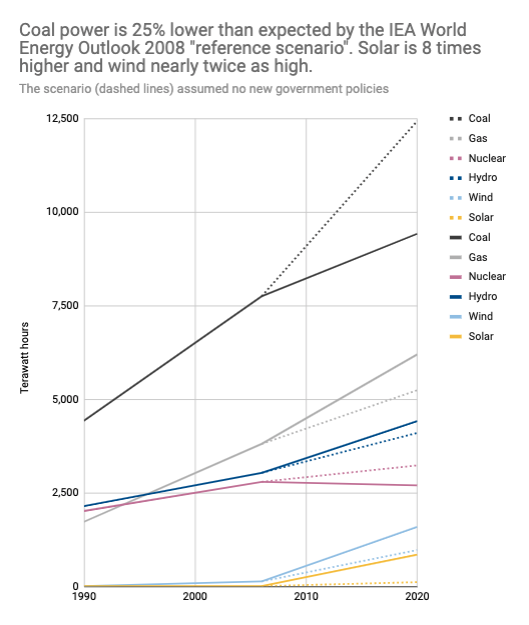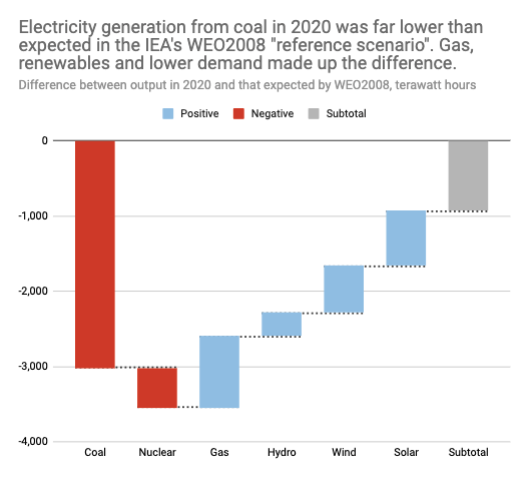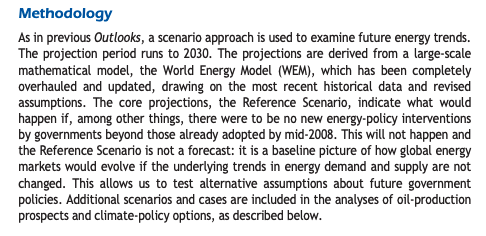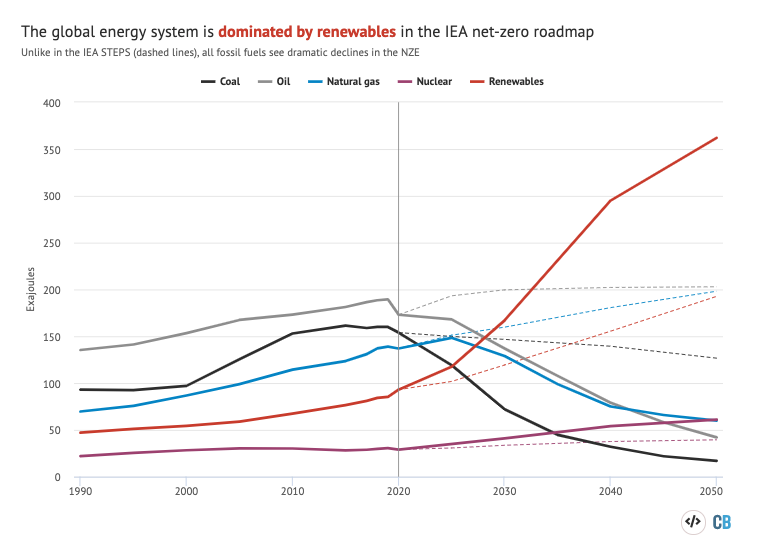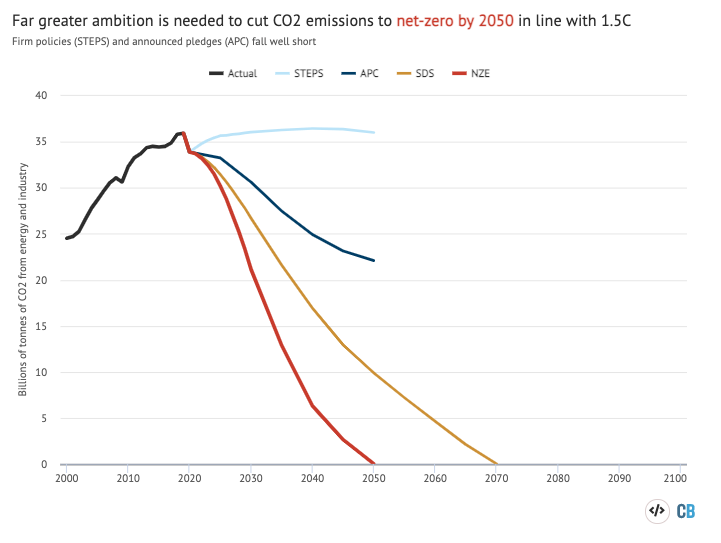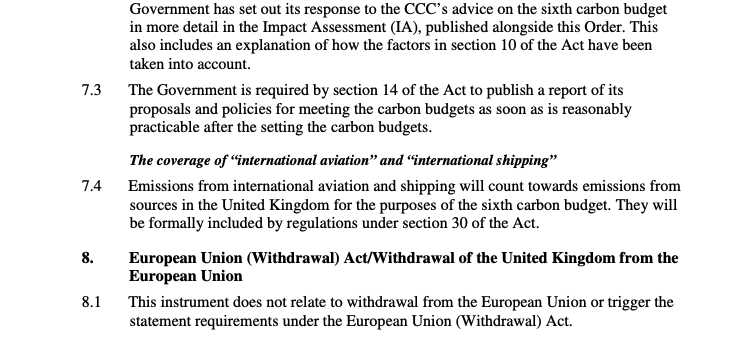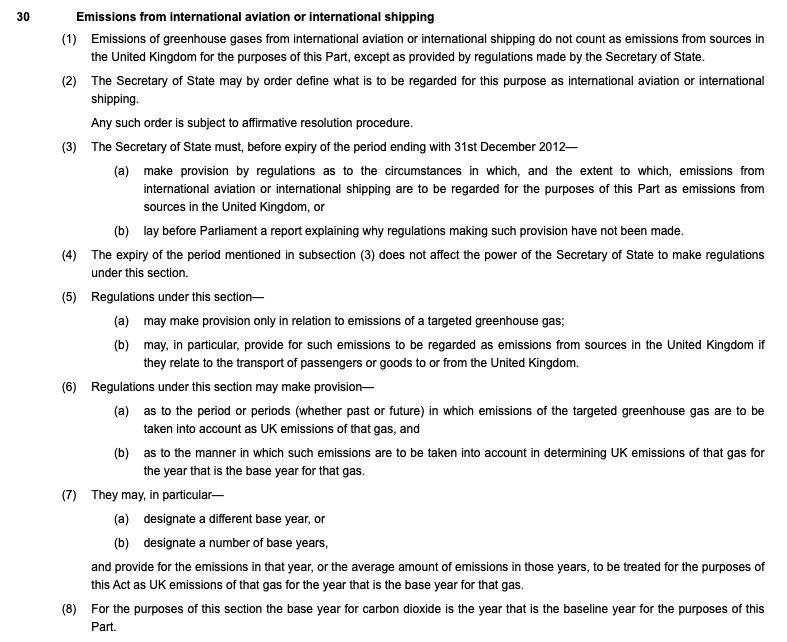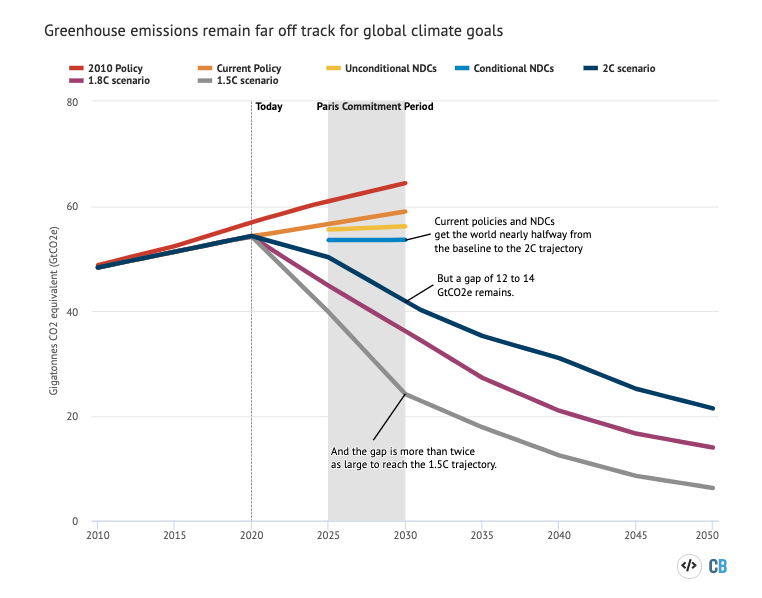
Today's Times frontpage is reporting govt plans to (consult on & then maybe) include heat & transport fuel in the UK's emissions trading scheme
A few thoughts
1/
thetimes.co.uk/article/gas-an…
A few thoughts
1/
thetimes.co.uk/article/gas-an…
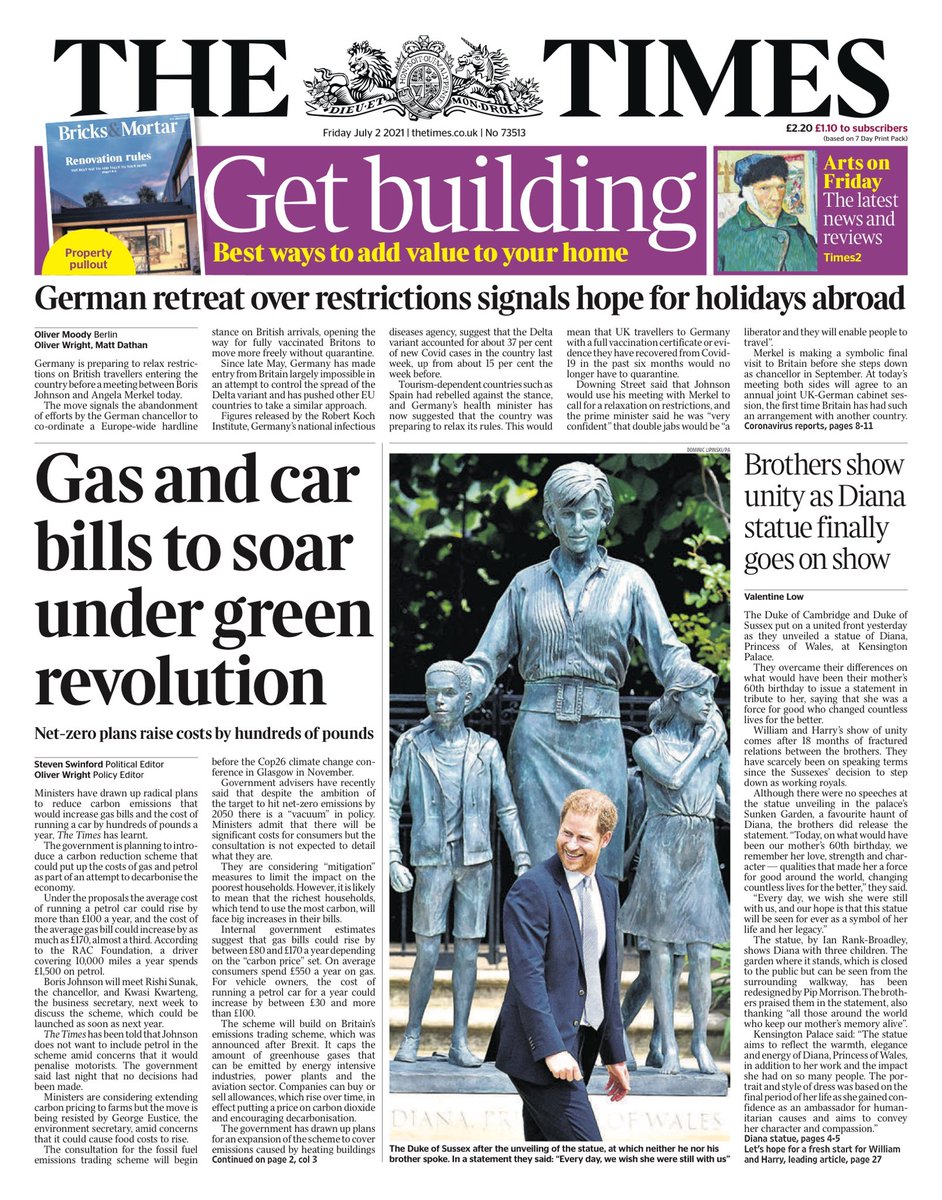
We currently only pay for CO2 emissions from electricity generation & industry
This is…bonkers
Domestic gas use gets an effective *subsidy* of ~£100/tCO2
(Air travel is even worse – and look at road vs rail!)
HT @EnergySysCat, scribbles are mine
2/
es.catapult.org.uk/comment/carbon…
This is…bonkers
Domestic gas use gets an effective *subsidy* of ~£100/tCO2
(Air travel is even worse – and look at road vs rail!)
HT @EnergySysCat, scribbles are mine
2/
es.catapult.org.uk/comment/carbon…
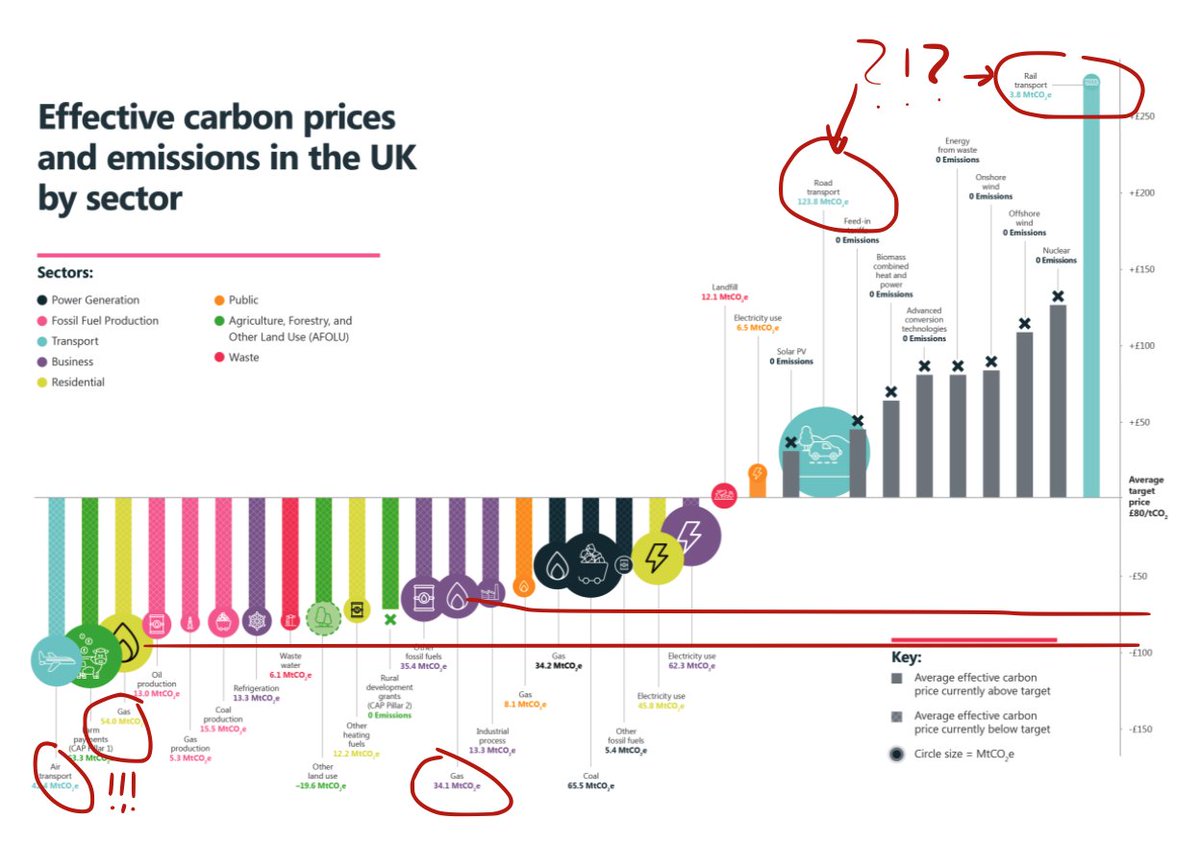
So as a matter of principle, it would make sense to have a CO2 price on gas and (all!) transport fuels
(Economists often bang on about harmonised economy-wide carbon pricing for optimum "efficiency")
✅Polluter pays
✅Shift fiscal incentives towards electricity
But…
3/
(Economists often bang on about harmonised economy-wide carbon pricing for optimum "efficiency")
✅Polluter pays
✅Shift fiscal incentives towards electricity
But…
3/
As @EnergySysCat chief exec says "a carbon tax is not the silver bullet" and "imposing a pure carbon tax is fraught with compromises and political revolt…Gilet Jaunes a l’Angleterre, anyone?"
4/
es.catapult.org.uk/comment/carbon…
4/
es.catapult.org.uk/comment/carbon…
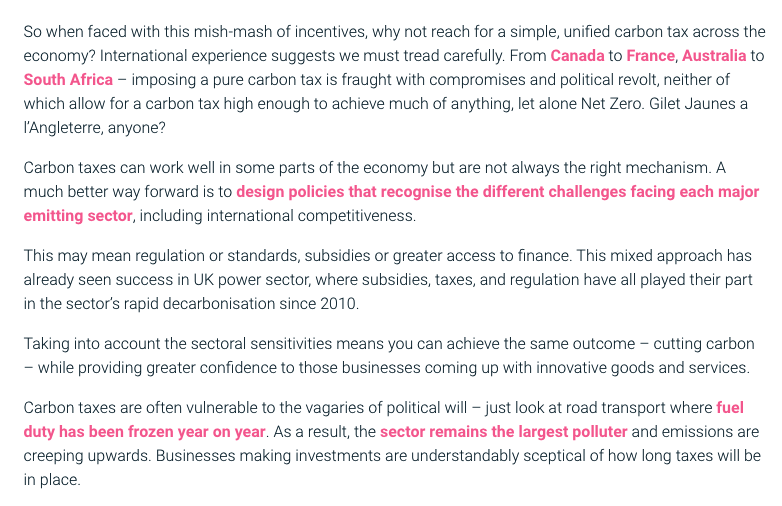
Check out @timbolord thread for more on what else would need to change if gas / transport are to face a carbon price, crucially including policy to support vulnerable households and ministers publicly making the case for change
5/
5/
https://twitter.com/timbolord/status/1410880162485374978
I'll just end by saying that the Times story is obviously based on leaked info, which may be selective & may not reflect govt plans in the round
Not only that, but any big changes of this sort would be subject to public consultation
Let's see what is actually proposed
6/ends
Not only that, but any big changes of this sort would be subject to public consultation
Let's see what is actually proposed
6/ends
One last thing to add!
@RichHallCA had a thoughtful blog yesterday on the question of whether and how to shift climate & social policy costs off electricity bills, paying for them via gas bills or taxes. Def worth a read.
7/6
wearecitizensadvice.org.uk/an-electrifyin…
@RichHallCA had a thoughtful blog yesterday on the question of whether and how to shift climate & social policy costs off electricity bills, paying for them via gas bills or taxes. Def worth a read.
7/6
wearecitizensadvice.org.uk/an-electrifyin…
OK OK, there's more
The EU is currently going through the same discussions about whether to expand CO2 pricing to heat + transport
8/
reuters.com/business/susta…
The EU is currently going through the same discussions about whether to expand CO2 pricing to heat + transport
8/
reuters.com/business/susta…
Leaked draft EUETS reform proposals would expand coverage to shipping fuel but heat + transport would be dealt with under a separate scheme, with revenues used to support vulnerable households
9/
reuters.com/business/susta…
9/
reuters.com/business/susta…
Despite proposed efforts to manage impacts of CO2 pricing on heat + transport at EU level, the idea has still faced criticism for being "unfair and ineffective"
(NB part of this critique is nullified by the idea of a separate ETS for heat/transport)
10/
montelnews.com/en/news/119439…
(NB part of this critique is nullified by the idea of a separate ETS for heat/transport)
10/
montelnews.com/en/news/119439…
New study from @CambridgeEcon (funded by ECF – full disclosure, ECF funds CB too) suggests including heat/transport in the EUETS would have limited impact on CO2, but high social cost
11/
europeanclimate.org/resources/impa…
11/
europeanclimate.org/resources/impa…
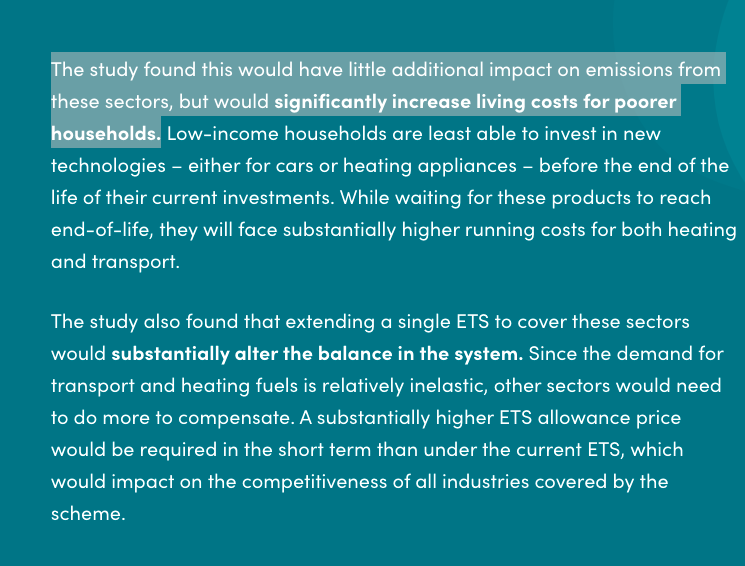
Finally, Germany has already introduced carbon pricing for heat and transport under a national ETS
Handy primers here:
pinsentmasons.com/out-law/analys…
cleanenergywire.org/factsheets/ger…
12/
Handy primers here:
pinsentmasons.com/out-law/analys…
cleanenergywire.org/factsheets/ger…
12/
• • •
Missing some Tweet in this thread? You can try to
force a refresh


